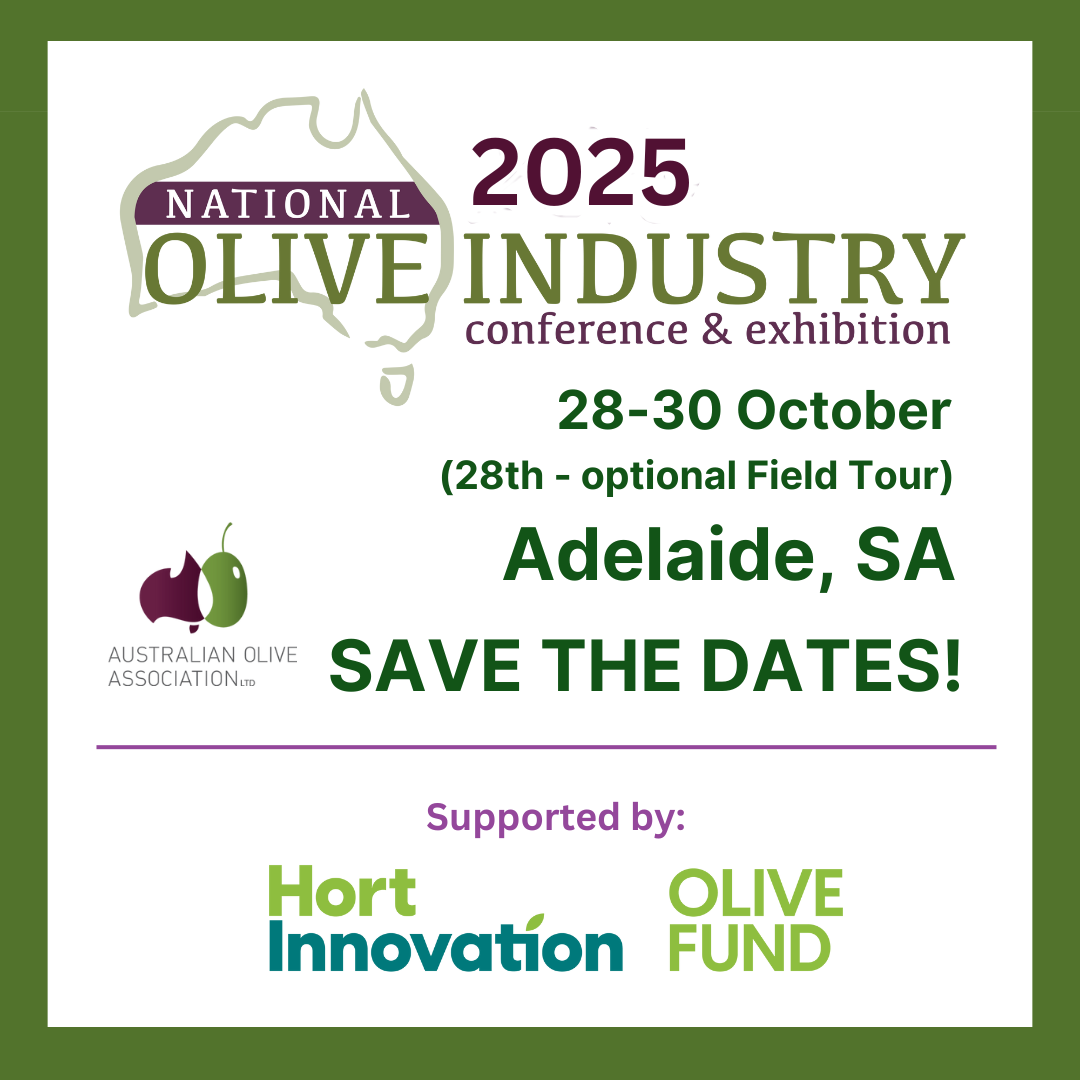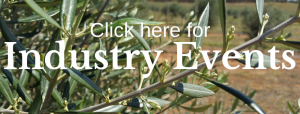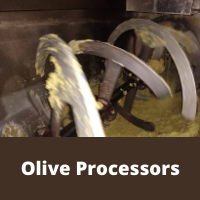Olives South Australia Inc is convening a series of planning workshops following the State Government’s recent approval of a “Voluntary Contributions” Scheme for South Australian Olive Growers under the Primary Industry Funding Schemes Act 1998 to fund projects that will be of benefit to the South Australian olive industry.
Lisa Rowntree, Olives SA President said the first of three meetings will be hosted by the Fleurieu Peninsula Olive Growers with registration on Tuesday 19 May from 5.45 pm for a 6.00 pm start at the Alma Hotel, 11 Hill Street Willunga.
The other workshops are scheduled to be held:
o Tuesday 9 June 2009, registration from 6.00 pm for a 6.30 pm start, to be followed by an Olives SA Special General Meeting at 8.15 pm. (Venue to be advised).
o Tuesday 23 June 2009, registration from 3.45 pm for a 4.00 pm start at the Virginia Horticulture Centre, Old Port Wakefield Rd. Virginia.
Lisa Rowntree, Olives SA President said the planning workshops will be an opportunity for olive industry participants to provide input to the development of the first five year “Olive Industry Fund Management Plan”. The workshops will be facilitated by independent consultant Peter McFarlane who has been retained to assist Olives SA to prepare the plan.
The final plan must also be approved by the SA Minister for Agriculture Food and Fisheries, with Olives SA required to report annually to the Minister and to industry on the projects funded and actual outcomes achieved for industry.
The growers’ contribution to the fund for 2009 is set at $4/t on all olives sold or processed for oil or table olives, to be collected by PIRSA via olive processors, with the contribution rate increasing to a maximum of $6/t in the 2011 processing season.
The workshops will explore suggested strategies and programs to address the three key issues facing the industry as identified by SA olive growers and processors during consultation on the olive levy undertaken during 2008:
1. Market development – export market development / branding / consumer education to lift domestic demand for Australian EVOO.
2. Supply chain relationships to establish an effective link between production and the market to establish industry standards and manage risk, (Including the need for new marketing arrangements for the olive industry).
3. Productivity – both on farm and processing – efficiency and critical mass to lower the unit cost of production and make Australian EVOO more market competitive



